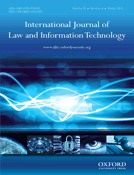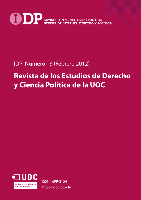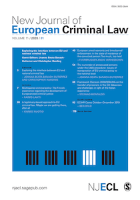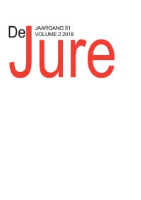
International Journal of Law and Information Technology
Scope & Guideline
Exploring Legal Frontiers in the Digital Age.
Introduction
Aims and Scopes
- Legal Frameworks and Technology Regulation:
The journal examines how existing legal frameworks adapt to and regulate emerging technologies, including AI, blockchain, and data privacy, highlighting the need for new legal approaches in the digital age. - Human Rights and Digital Ethics:
A core area of focus is the impact of technology on human rights, exploring the ethical implications of technology use, such as content moderation, data privacy, and the rights of individuals in the digital space. - Cross-Border Legal Challenges:
The journal addresses legal challenges that arise in cross-border contexts, such as jurisdictional issues in e-commerce, international data transfers, and the harmonization of laws across different jurisdictions. - Intellectual Property in the Digital Era:
It explores the evolving landscape of intellectual property law in relation to digital assets, NFTs, and the implications of AI on copyright and patent laws. - Cybersecurity and Data Protection:
The journal covers legal issues related to cybersecurity, data breaches, and the protection of personal information, emphasizing the legal frameworks necessary to safeguard individuals and organizations.
Trending and Emerging
- Artificial Intelligence and Liability:
A significant increase in discussions surrounding AI liability and regulatory frameworks, particularly in the context of generative AI and machine learning, reflects the growing concern over accountability in technological advancements. - Digital Identity and Data Sovereignty:
Emerging themes related to digital identity management and data sovereignty highlight the importance of individual rights and national policies in an increasingly digital world. - Ethical Considerations in Technology Use:
There is a marked interest in the ethical implications of technology, especially concerning AI and its impact on human rights, suggesting an evolving dialogue around responsible technology use. - NFTs and Digital Assets:
An increasing focus on legal issues surrounding NFTs and digital assets indicates a burgeoning interest in how traditional legal principles apply to new forms of digital ownership. - Content Moderation and Human Rights:
Papers addressing the intersection of content moderation and human rights laws reveal a growing recognition of the challenges posed by digital platforms in maintaining free expression while protecting individuals.
Declining or Waning
- Traditional Intellectual Property Concerns:
There is a noticeable decline in papers focused on traditional intellectual property issues unrelated to digital technology, suggesting a shift towards more contemporary digital asset discussions. - General Discussions on Technology Without Legal Context:
Themes that discuss technology in isolation, without a direct connection to legal implications or frameworks, have been appearing less frequently, indicating a preference for more integrated analyses. - Historical Perspectives on Law:
Papers offering historical analysis of legal frameworks are less common, as the focus appears to be shifting towards current and future challenges posed by technology.
Similar Journals

UNIVERSITY OF NEW SOUTH WALES LAW JOURNAL
Connecting Scholars, Professionals, and Students in Legal StudiesUniversity of New South Wales Law Journal, published by the University of New South Wales, Faculty of Law, is a leading academic journal that serves as an essential platform for discourse in the field of legal studies. With an ISSN of 0313-0096 and an E-ISSN of 1839-2881, the journal has been a beacon of legal scholarship since its inception in 1983. Operating from Kensington, New South Wales, Australia, it provides profound insights into various legal issues, emphasizing interdisciplinary perspectives by also being recognized in the fields of philosophy, sociology, and political science. While it maintains a Q3 ranking in Law and has shown increased visibility in Philosophy at Q2 according to the 2023 category quartiles, the journal assures a diverse range of critical analyses from scholars, professionals, and students alike. It is particularly valuable for researchers seeking to engage with contemporary legal debates, ensuring they remain at the forefront of academic and practical discussions in law and related disciplines.

Vestnik Permskogo Universiteta-Juridicheskie Nauki
Illuminating the Path of Contemporary Legal DiscourseVestnik Permskogo Universiteta-Juridicheskie Nauki, published by the Perm State National Research University, serves as a prominent platform for the dissemination of legal scholarship since its inception. With an Open Access policy implemented in 2009, this journal offers a wide range of legal studies, including comparative law, constitutional law, and international law, making it an essential resource for researchers, academics, and practitioners in the field. Although it is a relatively young publication, its commitment to quality and accessibility has established it as a respected voice in jurisprudence, contributing significantly to both national and international legal discourse. Researchers and students alike will find valuable insights within its pages, encompassing the latest developments and theoretical advancements within Russian and global legal systems. For those looking to stay informed on current legal issues and academic debates, this journal is a must-read.

IDP-Internet Law and Politics
Exploring the Frontiers of Internet Law and Politics.IDP-Internet Law and Politics, published by UNIV OBERTA CATALUNYA, is an esteemed open-access journal established since 2005, committed to exploring the interdisciplinary intersection of law, politics, and technology in the internet age. With its ISSN 1699-8154 and E-ISSN 1699-8154, this journal not only contributes to scholarly discourse but also embraces the evolving digital landscape that shapes our societies. As of 2023, it has garnered notable rankings, positioning it within Q2 in both the law and sociology/political science categories, while holding a Q3 status in the miscellaneous category of computer science, reflecting its comprehensive scope and relevance across multiple disciplines. The journal's accessibility facilitates the dissemination of emerging research and innovative ideas, making it a key resource for academics, practitioners, and students who aim to understand and shape the future of internet governance and digital rights. With its ongoing commitment to advancing knowledge from 2019 to 2024, IDP represents a significant contribution to contemporary debates, ensuring that legal and political perspectives remain at the forefront of technological change.

EUROPEAN JOURNAL OF INFORMATION SYSTEMS
Cultivating Thought Leadership in Information ManagementThe EUROPEAN JOURNAL OF INFORMATION SYSTEMS, published by Taylor & Francis Ltd, stands as a premier platform for groundbreaking research in the domains of Information Systems and Management. With an ISSN of 0960-085X and E-ISSN 1476-9344, this esteemed journal has been at the forefront of academic discourse since its inception in 1995, converging insights and innovative methodologies that reflect the dynamic landscape of information technology. Recognized for its excellence, the journal achieved a Q1 ranking across multiple categories in 2023, including Information Systems and Library & Information Sciences, underscoring its vital role in shaping contemporary research. Operating from the UK, the journal fosters an engaging scholarly community while offering researchers and practitioners insights that drive both theoretical advancement and practical application. Although it does not currently provide open access options, the journal's reputation for high-impact content makes it an essential resource for those who strive to advance the field. With an enduring commitment to quality, the EUROPEAN JOURNAL OF INFORMATION SYSTEMS continues to inform, inspire, and connect the next generation of scholars and professionals.

Law Technology and Humans
Navigating the Evolving Challenges of Tech LawLaw Technology and Humans is an innovative open-access journal published by Queensland University of Technology in Australia. Since its inception in 2019, it has emerged as a vital platform for scholarly discourse at the intersection of law, technology, and society, addressing pertinent challenges and advancements from 2019 to 2024. With categories spanning from Law and Social Sciences to Biotechnology and Information Systems, the journal caters to a diverse audience, achieving respectable rankings within its field—ranked #382 in Social Sciences (Law) and within the 62nd percentile in 2023. As a practitioner or researcher navigating the rapidly evolving landscape of tech law, Law Technology and Humans serves as an essential resource, fostering interdisciplinary collaboration and providing critical insights into the implications of technological innovation. By maintaining an open-access format, the journal enhances accessibility, promoting widespread engagement and knowledge sharing among academics, professionals, and students globally.

New Journal of European Criminal Law
Transforming legal scholarship through cutting-edge research.New Journal of European Criminal Law is a prominent academic journal devoted to the expansive realm of criminal law within the European context. Published by SAGE Publications Inc, this journal is dedicated to fostering scholarly dialogue and disseminating cutting-edge research that informs both policy and practice in the field. With an impressive Q3 ranking in Law and a solid position within the 60th percentile among its peers in Scopus, it serves as a vital resource for academics, practitioners, and students alike. Although the journal operates under a traditional access model, it provides readers with insightful articles that cover contemporary issues, legal analyses, and case studies pertinent to European criminal law. Since its inception in 2009, the journal has continually pursued its objective of advancing understanding and improving legal frameworks by inviting contributions that challenge existing paradigms and propose innovative solutions. Join a community committed to excellence in research and practice, and explore the latest developments in European criminal law within the pages of this esteemed journal.

Revista Chilena de Derecho y Tecnologia
Advancing Knowledge at the Intersection of Law and Innovation.Revista Chilena de Derecho y Tecnología is a distinguished open access journal published by Universidad de Chile, Facultad de Derecho, dedicated to exploring the interplay between law and technology in a rapidly evolving digital landscape. Since its inception, the journal has established itself as an essential resource for researchers, legal professionals, and students, facilitating critical dialogue and scholarship in this interdisciplinary field. With an impactful presence in the academic community, the journal has achieved notable rankings, including a Q1 classification in Law and a Q3 classification in both Computer Networks and Communications and Information Systems for the year 2023. Furthermore, the journal offers broad accessibility to its readers, having adopted an open access model since 2012, ensuring that cutting-edge research is available to a wider audience. Based in Santiago, Chile, the Revista Chilena de Derecho y Tecnología serves as a vital platform for advancing knowledge, fostering innovation, and responding to the legal challenges posed by emerging technological advancements, thereby contributing significantly to its respective fields.

DUKE LAW JOURNAL
Charting the course for contemporary legal discourse.DUKE LAW JOURNAL is a premier scholarly journal published by Duke University, dedicated to advancing the field of law through rigorous research and critical analysis. With an ISSN of 0012-7086 and an E-ISSN of 1939-9111, this distinguished journal has established itself as a vital resource for legal scholars, practitioners, and students alike. As a member of the top quartile (Q1) in Law for 2023 and ranking 267 out of 1025 in the Scopus database, the journal showcases high-impact articles that contribute to the contemporary discourse on legal theory, practice, and reform. While it does not currently offer open access, its rich archive since 1978 provides invaluable insights into significant legal developments in the United States and beyond. The DUKE LAW JOURNAL serves not only as a repository of knowledge but also as a forum for diverse perspectives, making it an essential tool for anyone engaged in the legal profession or academia.

De Jure Law Journal
Championing Open Access to Enhance Legal Knowledge.De Jure Law Journal, published by Pretoria University Law Press, is a reputable open access journal that has been serving the legal community since its establishment in 2011. With its commitment to disseminating high-quality research, this journal focuses on various aspects of law and legal principles, encompassing a broad range of topics from constitutional law to international legal frameworks. The journal's ISSN 1466-3597 and E-ISSN 2225-7160 ensure that it is easily accessible and widely recognized in academic circles. Positioned as a significant contributor to legal scholarship in South Africa and beyond, De Jure Law Journal is dedicated to fostering a critical dialogue among researchers, practitioners, and students alike, making it an essential resource for anyone engaged in legal studies.

Revista General de Derecho Canonico y Derecho Eclesiastico del Estado
Advancing Scholarship at the Intersection of Religion and LawRevista General de Derecho Canonico y Derecho Eclesiastico del Estado, published by IUSTEL, serves as a pivotal platform for scholarly discourse and analysis in the fields of canon law and ecclesiastical state law. With a dedicated focus on the intersection of religious and civil legal frameworks, this journal provides researchers, practitioners, and students with rigorous peer-reviewed articles that contribute to the understanding and development of these critical areas of law. Although the impact factor is not specified, the journal's commitment to high-quality scholarship positions it as an essential resource for professionals and academics alike. As an open access publication, it ensures wide dissemination of its content, fostering an inclusive environment for intellectual exchange. Based in Madrid, Spain, the journal invites contributions from a diverse array of legal scholars, aiming to bridge the gap between canonical and secular legal perspectives, thereby enhancing global dialogue on these significant topics.